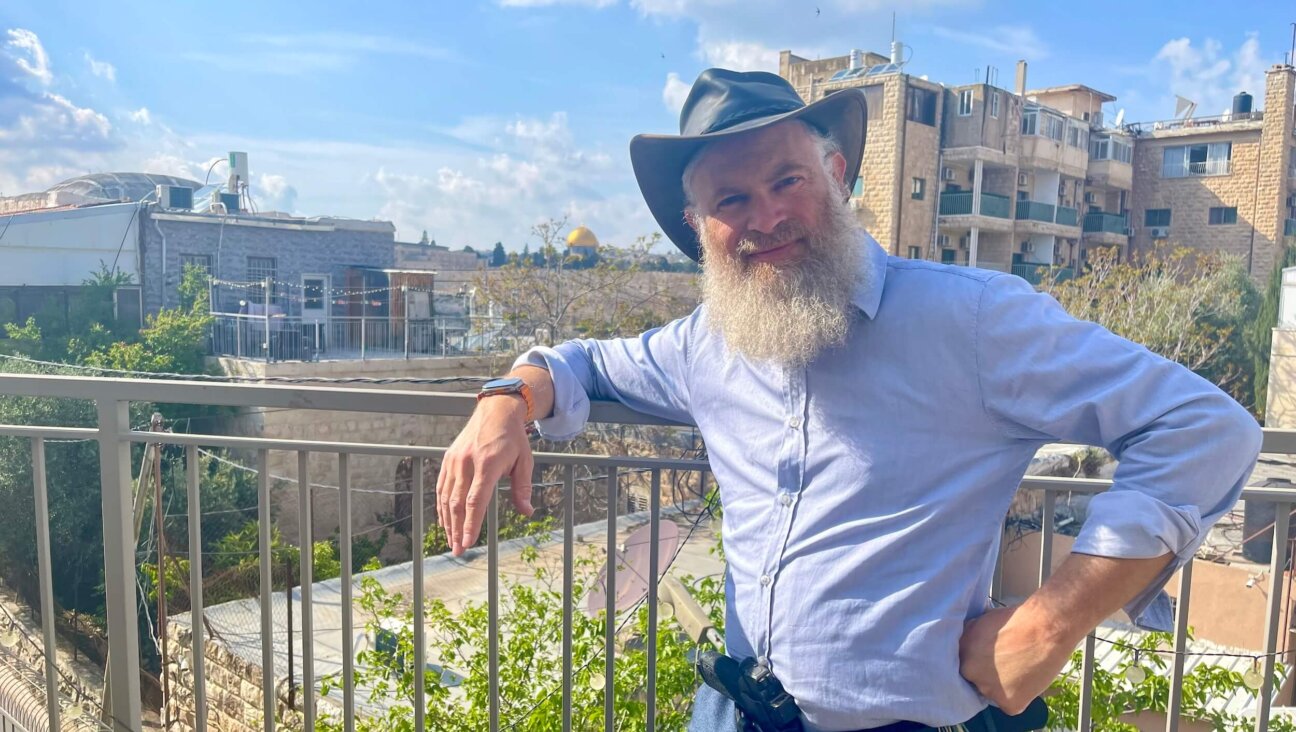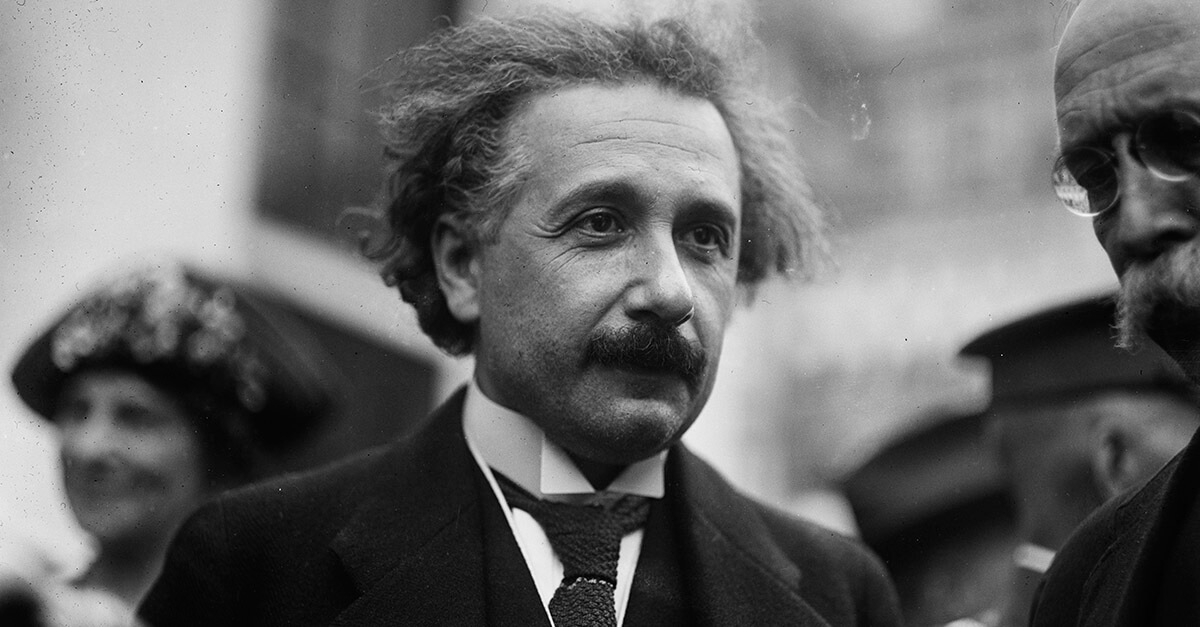Will Volodymr Groysman Be the First Jewish Premier of Ukraine?

Image by Wikipedia
Volodymr Groysman is on the verge of making history as the first Jewish Prime Minister of Ukraine, a country firmly planted in the American psyche as a place of anti-Semitism and pogroms.
Groysman, 38, is proposing the formation of a new coalition government following the resignation of Prime Minister Areniy Yatsenyuk on Sunday.
If Groysman’s proposal is accepted by Ukraine’s parliament Tuesday – as seems likely — he will become the only Jew to occupy such a prominent political post in Central and Eastern Europe where political anti-Semitism remains a problem.
Groysman, the current chairman of the notoriously fractious Ukrainian parliament, is known as a capable administrator and has looked for several months like a favorite to replace the embattled Yatsenyuk.
In recent weeks, Ukrainian President Petro Poroshenko pushed hard to convince opposition parties to unite behind Groysman to try to stabilize the country following months of political turmoil that have endangered billions of dollars in IMF loans.
But Groysman’s position looked less secure last week after Poroshenko was damaged by revelations stemming from a massive leak of documents from the Panamanian law firm Mossack Fonseca.
The documents showed that in 2014, when hundreds of Ukrainians were dying during a peak in fighting with Russian separatists in East Ukraine, Poroshenko was busy transferring his assets to an offshore account in the British Virgin Islands.
Corruption is endemic in Ukraine. One more financial scandal involving a politician — and one of the country’s richest businessmen at that — did not appear to hurt Poroshenko as much as it undermined other leaders such as Iceland’s Prime Minister, Sigmundur David Gunnlaugsson, who was forced to resign in the wake of the Panamanian revelations.
But the scandal did force Poroshenko on the defensive. While Poroshenko insisted that he did nothing wrong, some populist opposition MPs called for a parliamentary inquiry, making Groysman’s position even more uncertain.
Groysman’s prospects were resurrected on Sunday when Prime Minister Yatsenyuk announced that he would step down officially on Tuesday and that he expected to be replaced by Groysman. Though the reasons behind the timing and nature of the announcement remain unknown, Yatsenyuk’s party is one of the largest in the Ukrainian parliament seeming to suggest that Groysman will have enough support.
As Poroshenko’s ally, Groysman is not a universally popular figure. But it is notable that in a region of Europe prone to anti-Semitism, Groysman’s Jewish background has been notably absent from opposition to his candidacy.
Anton Shekhovtsov, an expert on the European far right, says that’s because anti-Semitism is not as deeply embedded or as popular in Ukraine as it is in say, Poland, or in Hungary.
Shekhovtsov, a visiting fellow at the Institute for Human Sciences in Vienna, Austria, said that anti-Semitism in Poland and in Hungary still appeals, particularly to the generation that lived through World War Two when Jews were often linked to Soviet Communism.
“I can’t really imagine a person like Groysman being prime minister in Poland or Hungary,” Shekhovtsov said. “There would be huge opposition to him. Maybe people wouldn’t voice their opposition in anti-Semitic terms but they would find some other reason to oppose [such] a candidate.”
By contrast, he said, anti-Semitism was pushed to the margins in the independent Ukraine that emerged during the early 1990s following the fall of Communism.
Ukraine, which is often torn between its attraction to Russia in the east and to the European Union in the west, still suffers from its own brand of anti-Semitism.
The far-right Svoboda party has had varying degrees of success since its founding 25 years ago. In the 2012 parliamentary election, Svoboda won 10% of the vote. Yet just two years later, following the so-called Maidan revolution when the pro-Russian President Viktor Yanukovych was toppled from power, the party failed to reach the 5% threshold necessary to win a seat on the country’s party list system.
This most recent turbulent period saw a fall in the already low number of hate crime assaults on Jews, from an average of four per year between 2012 and 2014, to just one assault in 2015, according to data gathered by the Euro-Asian Jewish Congress’s National Minority Rights Monitoring Group.
But there has been a rise in anti-Semitic vandalism. Vyacheslav Likhachev, the head of the congress’s monitoring group, said that most vandalism targets Holocaust memorials and synagogues. In each of the past two years, there have been more than 20 anti-Semitic acts of vandalism in Ukraine, compared to fewer than 10 such incidents recorded in each year from 2011 to 2013.
Likhachev believes this is a direct result of Russia’s war with Ukraine. Likhachev said the past two years of unrest have made acts of vandalism more normal. But more than that, he believes that pro-Russian separatists have stoked anti-Semitism by using anti-Jewish conspiracy theories in their propaganda battle with Kiev.
Indeed, one quirk of the lack of anti-Semitism directed at Groysman is the fact that many anti-Semitic tropes in Ukraine today involve rumors that Ukraine is being run by a Jewish cabal. Referring to their alleged Jewish roots, far right groups refer to Poroshenko, as “Valtsman” and to opposition leader Yuliya Timoshenko, as “Kapitelman.”
According to Mikhail Krutikov, a Jewish Studies professor at the University of Michigan who closely follows Ukraine, there are even rumors that the country’s former prime minister Yatsenyuk might be Jewish because he wears glasses and was born in Chernivtsi, a city historically associated with a large Jewish population.
“When you come to someone like Groysman, who is openly Jewish, it’s not interesting because clearly he is Jewish,” Krutikov said.
Groysman began his career during the mid 1990s as the commercial director of a private Ukrainian company. He entered politics in 2002 as a councilor in the city of Vinnitsa, in west central Ukraine. Four years later, according to his biography on the city’s website, he became Vinnitsa’s youngest ever mayor at the age of 28.
In Ukraine, where governors are hand-picked by the president and where many members of parliament are elected according to a party list system, the post of mayor is one of the country’s few directly-elected political positions. Krutikov said that he first heard of Groysman when he was elected to lead Vinnitsa. “When he was in Vinnitsa people spoke very well of him,” Krutikov said. “He was very young, which was unusual. It was also unusual because he was Jewish.”
Olena Bagno-Moldavsky, who completed research last year into anti-Semitism stoked by the conflict between Russia and Ukraine, said it’s possible to find evidence that anti-Semitism is both on the rise and on the wane in Ukraine.
“I think the truth is, as usual, somewhere in between,” said Bagno-Moldavsky, a research fellow at the Institute for National Security Studies in Tel Aviv. “Clearly, we do not see signs of state-sponsored anti-Semitism in Ukraine in the last period. But, I do not think that Jewish roots is something that can help a politician to advance his career.”
Groysman’s critics have focused not on his Jewishness, but on his ties to Poroshenko, who is increasingly seen as part of the problem rather than the solution to Ukraine’s rampant corruption.
For Ukraine, the stakes could not be higher. The country’s governing coalition has been under intense pressure since three small parties resigned earlier this year, imperiling stalled payments from a $17.5 billion IMF bailout.
Natalie Jaresko, the country’s US-born finance minister put herself forward as a possible candidate for prime minister, emphasizing her technocratic credentials and her lack of ties to Ukraine’s tangled political and business interests. Poroshenko, a chocolate magnate with an estimated net worth of $730 million, wanted Groysman.
Groysman was elected to parliament in 2014 as a member of Poroshenko’s party, where he is viewed a competent and reliable loyalist.
“Nobody has said anything about being offended or angry that a Jew could become prime minister, which is pretty striking,” said David Fishman, a professor of Jewish history at the Jewish Theological Seminary in New York. “People don’t like Groysman because he just represents Poroshenko and business as usual.”
On Tuesday, Ukraine’s MPs will decide whether that business should continue.

I hope you appreciated this article. Before you go, I’d like to ask you to please support the Forward’s award-winning journalism this Passover.
In this age of misinformation, our work is needed like never before. We report on the news that matters most to American Jews, driven by truth, not ideology.
At a time when newsrooms are closing or cutting back, the Forward has removed its paywall. That means for the first time in our 126-year history, Forward journalism is free to everyone, everywhere. With an ongoing war, rising antisemitism, and a flood of disinformation that may affect the upcoming election, we believe that free and open access to Jewish journalism is imperative.
Readers like you make it all possible. Right now, we’re in the middle of our Passover Pledge Drive and we need 500 people to step up and make a gift to sustain our trustworthy, independent journalism.
Make a gift of any size and become a Forward member today. You’ll support our mission to tell the American Jewish story fully and fairly.
— Rachel Fishman Feddersen, Publisher and CEO
Join our mission to tell the Jewish story fully and fairly.
Our Goal: 500 gifts during our Passover Pledge Drive!
























